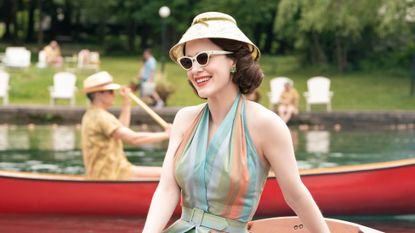

I want to be friends with Midge Maisel. I want to hear her tell jokes, I want to hang out with her at the Revlon counter, and I want her to order multiple sandwiches for me at Stage Deli. And how could I not? Midge—the titular character of Amazon's The Marvelous Mrs. Maisel, which dropped its second season yesterday—is a smart, ambitious, funny, hard-working, determined woman. She parlayed heartbreak into a stand-up comedy career, and learned to navigate newfound independence in a culture designed around the nuclear family.
But while she is all of those qualities and countless other synonyms for “marvelous,” she is not a feminist hero. I am sorry; I know you want to believe her to be so. But this fact in no way devalues her character or the series. In fact, it makes both even better.
As Rachel Brosnahan (the Emmy-winning actress who plays Midge to perfection) told The Guardian in an interview last month, Midge is on a Feminism 101 learning curve: She calls out sexism and double standards as she sees them, but only insofar as they relate to her experience. “She’s not thinking about any of this in a political context—she’s only thinking about it as it applies to her,” Brosnahan explains.
Which, like, of course. Maisel’s stage material may be about the way women are treated and the norms they’re expected to follow, but her feminist awakening isn’t sparked by realizations she came to by observation of the patriarchy. It’s sparked by the dissolution of her own young marriage. And because of that, her observations aren’t intersectional and are made under the gaze of heteronormative privilege.
She, like many women of her era (and also many now), relates everything to a very subjective truth. That limitation doesn't preclude her from being a compelling and multidimensional character, but it does prevent her from being a feminist icon. You are not a feminist hero simply for following your dreams. You are not a feminist hero if you’re only actively fighting for your own place.
And that’s a trajectory that continues from the first to the second season. As Midge goes on to pursue stand-up full-time and outside The Gaslight, she not only acknowledges what she wants (fame and money), she begins to articulate and broadcast it. For the 1950s, that’s admittedly cutting-edge. As a divorcée who co-parents (and maintains a friendship with) her ex-husband, Joel, and works part-time, her life choices are already controversial. For Midge to add a pursuit largely reserved for men into the mix is positively revelatory.
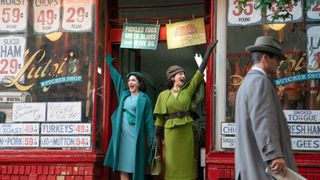
But the thing is, it’s a mistake to equate ambition with feminism—and an even bigger mistake to paint Midge with a feminist brush simply because her own experiences happen to enlighten her to the realities of inequality for the first time. In Midge, we have more than the two-dimensional poster girl for basic “lean in” feminism; we have a flawed, problematic, and largely privileged woman who makes mistakes and tries to do better—a woman who’s gone from being aghast at Susie and her low-income lifestyle to living a version of it herself, and aspiring to bring Susie up with her. We have a character we can feel good about rooting for because she’s endearing and contradictory (which means we also have a character who, at times, drives us bananas for those very same reasons).
Stay In The Know
Marie Claire email subscribers get intel on fashion and beauty trends, hot-off-the-press celebrity news, and more. Sign up here.
Of course, a little progress doesn’t give Midge a free pass to stop learning or growing, or to use her success as a barometer for what other women are experiencing. (Especially since one of her best qualities is how much she genuinely cares about people and listens when they talk to her about things.) And it also isn’t to say she lacks feminist values. Instead, this is a call for us as viewers to stop awarding gold stars to female characters simply because they’re more than just somebody’s partner, or because they happen to be ambitious and smart. It's also a call to stop expecting all female leads to be paragons of feminist ideology, because in doing so, we place those characters in the same type of boxes that said ideology is meant to break them out of. Even in the golden age of TV, female characters have to have excuses for why they’re allowed to be flawed or complicated in the same way male characters get to be.
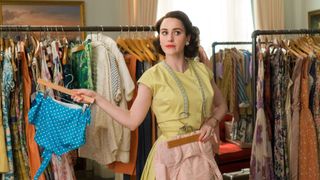
And that’s the thing: We allow male characters much more room to act out and learn and repent and pursue their whims without requiring of them some political justification for doing so. They’re allowed to speak for just themselves. It’s fair to expect The Marvellous Mrs. Maisel to be a story about a strong, likable woman—the claim is laid in the title—but it’s unfair to assume that because the story revolves around her, she’s to paint a perfect feminist picture that speaks for the universality of the female experience. Especially since the show is set in 1958 on the Upper West Side of New York City, she hardly had the opportunity to question a system she happily embraced until it failed her, much less notice that the same system fails pretty much everyone who isn’t white, male, straight, or rich.
Like Brosnahan said herself, Mrs. Maisel is learning. She is figuring it out. And while those lessons may certainly have a pro-woman slant, it’s unfair to assign her the title of Feminist Hero™, especially since Midge never aspired to be a feminist hero. If she occasionally understands feminist concepts, the show is all the better for it. But for now, she's simply carving out a new path the best way she knows how, imperfect as that may be.
For more celebrity news, beauty and fashion advice, savvy political commentary, and fascinating features, sign up for the Marie Claire newsletter.
RELATED STORY
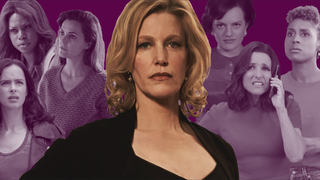
Anne T Donahue is a writer and person originally from Cambridge, Ontario, and is the author of the essay collection, Nobody Cares.
-
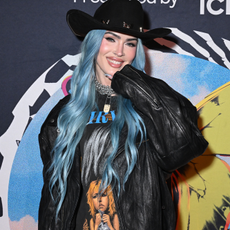 Megan Fox Responds to Chelsea From 'Love Is Blind' Lookalike Drama
Megan Fox Responds to Chelsea From 'Love Is Blind' Lookalike DramaShe hopes the reality star is doing OK.
By Iris Goldsztajn Published
-
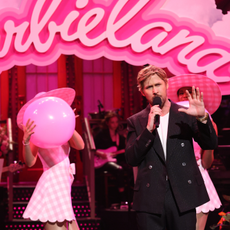 Taylor Swift Endorses Ryan Gosling and Emily Blunt's "All Too Well" Parody From 'SNL'
Taylor Swift Endorses Ryan Gosling and Emily Blunt's "All Too Well" Parody From 'SNL'She loves it.
By Iris Goldsztajn Published
-
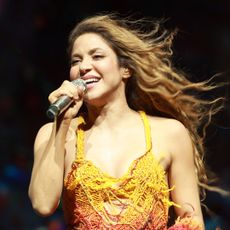 Shakira Makes Surprise Coachella Appearance and a Big Announcement
Shakira Makes Surprise Coachella Appearance and a Big AnnouncementThe iconic singer also performed two songs for the crowd.
By Danielle Campoamor Published
-
 ‘Bachelor in Paradise’ 2023: Everything We Know
‘Bachelor in Paradise’ 2023: Everything We KnowCue up Mike Reno and Ann Wilson’s “Almost Paradise."
By Andrea Park Last updated
-
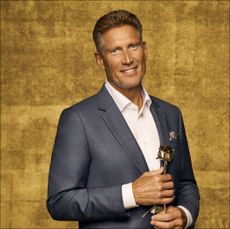 Who Is Gerry Turner, the ‘Golden Bachelor’?
Who Is Gerry Turner, the ‘Golden Bachelor’?The Indiana native is the first senior citizen to join Bachelor Nation.
By Andrea Park Last updated
-
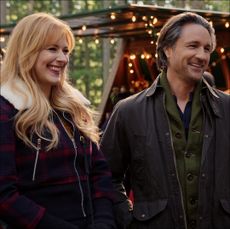 ‘Virgin River’ Season 6: Everything We Know
‘Virgin River’ Season 6: Everything We KnowHere's everything we know on the upcoming episodes.
By Andrea Park Last updated
-
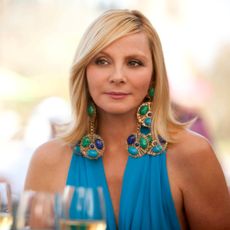 Kim Cattrall Didn't See or Speak to Her Costars When Filming 'And Just Like That' Cameo
Kim Cattrall Didn't See or Speak to Her Costars When Filming 'And Just Like That' CameoThat's some type of commitment.
By Iris Goldsztajn Published
-
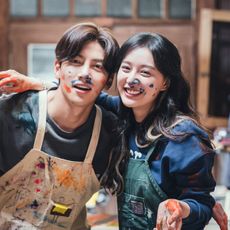 The 60 Best K-Dramas You'll Be Completely Hooked On
The 60 Best K-Dramas You'll Be Completely Hooked OnWait, how is it already 2 a.m.?
By Quinci LeGardye Last updated
-
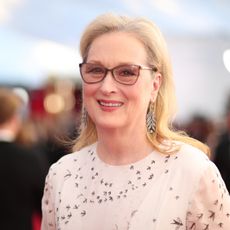 Selena Gomez Revealed Meryl Streep Is Joining 'Only Murders in the Building' Season 3
Selena Gomez Revealed Meryl Streep Is Joining 'Only Murders in the Building' Season 3Fans are losing it.
By Iris Goldsztajn Published
-
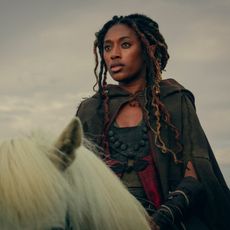 Sophia Brown on Joining the World of ‘The Witcher: Blood Origin’
Sophia Brown on Joining the World of ‘The Witcher: Blood Origin’The actress opens up about the “surreal process” of playing the Lark in the Netflix fantasy prequel.
By Quinci LeGardye Published
-
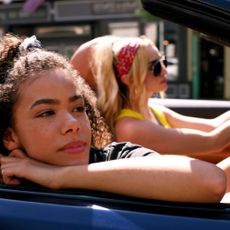 'Ginny & Georgia' Season 2: Everything We Know
'Ginny & Georgia' Season 2: Everything We KnowNetflix owes us answers after that ending.
By Zoe Guy Last updated